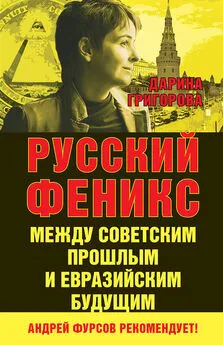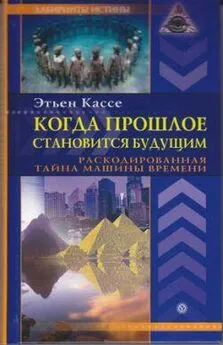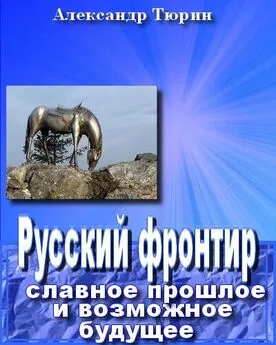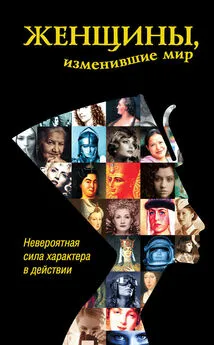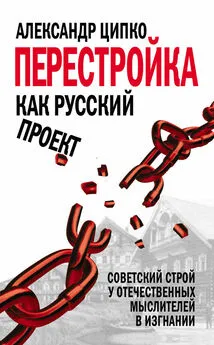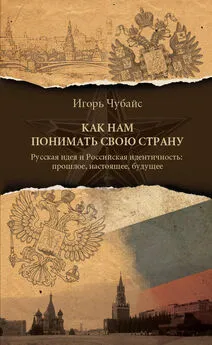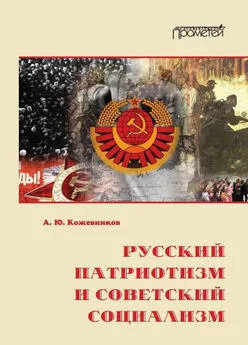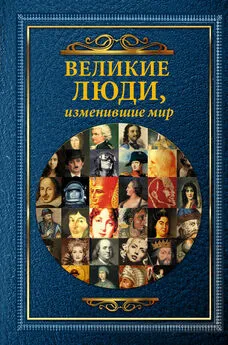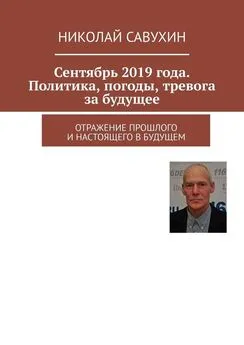Дарина Григорова - Русский Феникс. Между советским прошлым и евразийским будущим
- Название:Русский Феникс. Между советским прошлым и евразийским будущим
- Автор:
- Жанр:
- Издательство:Книжный мир
- Год:2018
- Город:Москва
- ISBN:978-5-6040153-9-1
- Рейтинг:
- Избранное:Добавить в избранное
-
Отзывы:
-
Ваша оценка:
Дарина Григорова - Русский Феникс. Между советским прошлым и евразийским будущим краткое содержание
Русский Феникс. Между советским прошлым и евразийским будущим - читать онлайн бесплатно ознакомительный отрывок
Интервал:
Закладка:
Венедиктов, А. «Перехват». // Эхо Москвы, 10 декабря 2011 г. http://echo.msk.ru/programs/interception/837746-echo/ (10.12.11).
308
Звягинцев, А. «Дифирамб». // Эхо Москвы, 4 марта 2012 г. http:// www.echo.msk.ru/programs/dithyramb/864147-echo/#element-text (12.03.12).
309
Акунин, Б. Разговор с политиком. // Блог Бориса Акунина, 3 января 2012 r.http://borisakunin.livejournal.com/49763.html
310
17 часов на свободе. Интервью Евгении Альбац, The New Times с Михаилом Ходорковским, 21 декабря 2013 г. https://www.youtube. com/watch?v=jbW0amVuXNM. Михаил Ходорковский прямо заявляет, что воевал бы за Северный Кавказ, если придется, и «что в определенной степени является националистом».
311
Организация, запрещенная в РФ.
312
Ходорковский, М. Между империей и национальным государством. Национализм и социальный либерализм. // Новая газета. № 65. 15 июня 2012 г. http://www.novayagazeta.ru/politics/53088. html
313
«… Панайот Хитов удалился в Болград под высочайшую милость правительства, неуловимый Тотю стал корчмарем в Одессе, Желю занялся литьем черепицы в Брайле, баснословный Дишлия следил, чтобы корчмарь не подливал в вино воды, Раковский давно почивал в могиле, Касабов опубликовал официальное заявление, что его имя не Касабов, а Касабияно – одним словом, все были разочарованы, каждый хотел бороться не с Турцией, а за собственное существование… Всюду апатия, страх перед турецким велчием и самопризнание в том, что болгары и должны искупить свои грехи с терпением и мольбой, обращеной к босфорскому великану. Один Левеки не пожелал пойти на компромисс с духом эпохи…». // 3. Стоянов, Басил Левеки (Дьякон). Черты его жизни, http://www.promacedonia.org/zs/zs_9.htm
314
«Двери и ставни лавок захлопали ужасно, словно всю торговую улицу заполонили кузнецы, и через две или три минуты перед нами все опустело […] «Бунт, бунт! Ну же, выходите! Пять часов уже бьются копривштенцы!» – кричали мы и разделившись по двое, вошли в окраинную улицу, Бенковски и Волов с одной стороны, а мы вдвоем с Икономовым с другой, от пазарджикской дороги. Напрасно мы драли горла, крича: «Бунт!» и «К оружию!». Ни одного мужчины не видно было на улицах: одни любопытные женщины и дети толпились у стен, которые рассматривали нас очень пристально. Все живое уже успело укрыться в домах, заслышав наши голоса, каждый бежал, словно мы были какие-то злые духи». // Захари Стоянов. Записки о болгарских восстаниях, http://www.slovo.bg/showwork.php3?AuID=149&WorkID=5774&L evel=3
315
Vadim Skuratovskij. Pour une typologie des relations culturelles russo-ukrainiennes. Cahiers du Monde russe, Vol. 36, No. 4, L'ukraine ancienne et nouvelle, Reflexions surle passe culturel et le present politique de l'Ukraine (Oct.-Dec., 1995), p. 409.
316
Георгий Вернадский: «Считаю себя украинцем и русским одновременно».//АЬ Imperio. 2006. № 4. С. 347–369.
317
Shakandrij М. Russia and Ukraine: Literature and the Discourse of Empire from Napoleonic to Postcolonial Times. McGill-Oueen’s University Press, 2001, p. 269.
318
«Палачи наши болыневки повсюду распускают слухи, будто бы украинские повстанцы уничтожают еврейское население. А я, Главный Атаман Украинского Войска, не верю этому, не верю, ибо знаю, народ украинский, который, притесняемый грабителями-завоевателями, сам не может притеснять другой народ […] еврейское население… уничтожают его сами большевики». Обращение С. Петлюры к населению Украины относительно недопущения еврейских погромов. // Симон Петлюра. Главный атаман в плену несбытычных надежд. М.-СПб., 2008. С. 314–315.
319
«Ukrainian partisans who mass-murdered Poles in 1943 followed the tactics they learned as collaborators in the Holocaust in 1942: detailed advance planning and site selection] persuasive assurances to local populations prior to actions] sudden encirclements of settlements] and then physical elimination of human beings. Ukrainians learned the techniques of mass murder from Germans. This is why UPA ethnic cleansing was striking in its efficiency»: Timothy Snyder. Reconstruction of Nations: Poland, Ukraine, Lithuania, Belarus, 1569–1999. Yale University Press, 2003, p. 144, 160,162,165.
320
Georgiy Kasianov. «Nationalized» History: Past Continuous, Present Perfect, Future… Laboratory of Transnational History: Ukraine and Recent Ukrainian Historiography. Edited by Kasianov, Georgiy, Ther, Philipp. Central European University Press, Budapest-New York, 2009, p. 7, 15.
321
Касьянов, Г. Современное состояние украинской историографии: методологические и институциональные аспекты.//Ab Imperio:
Теория и история национальностей и национализма в постсоветском пространстве. № 2. 2003. С. 493–494.
322
Georgiy Kasianov. The «Nationalization» of History in Ukraine. – The Convolution of Historical Politics. Edited by Alexei Liller and Maria Lipman. Central European University Press. Budapest-New York, 2012, p. 150, 153,156,159.
323
Andreas Kappeler. From an Ethnonational to a Multiethnic to a Transnational Ukrainian History. Laboratory of Transnational History: Ukraine and Recent Ukrainian Historiography. Edited by Kasianov, Georgiy, Ther, Philipp. Central European University Press, Budapest-New York, 2009, p. 61, 72.
324
Philipp Ther. The Transnational Paradigm of Historiography and Its Potential for Ukrainian History. Laboratory of Transnational History: Ukraine and Recent Ukrainian Historiography. Edited by Kasianov, Georgiy, Ther, Philipp. Central European University Press, Budapest-New York, 2009, p. 82, 84, 86.
325
«histoire croisee» («crossed history»)
326
«Central European Identity», «post-Soviet Identity», «Euro-ukrainian Identity the most all-Ukrainian Identity in Ukraine»: John-Paul
Himka. The Basic Historical Identity Formations in Ukraine: A Typology. Harvard Ukrainian Studies, Vol. 28, No. 1/4, RUS' WRIT LARGE: LANGUAGES, HISTORIES, CULTURES: Essays Presented in Honor of Michael S. Flier on His Sixty-FifthBirthday (2006), pp. 483–484,495.
327
John-Paul Himka. The Basic Historical Identity Formations in Ukraine: A Typology. Harvard Ukrainian Studies, Vol. 28, No. 1/4, RUS' WRIT LARGE: LANGUAGES, HISTORIES, CULTURES: Essays Presented in Honor of Michael S. Flier on His Sixty-FifthBirthday (2006), p. 493–494.
328
«I think I may be done crusading. But my crusade was not anti-OUN-UPA as such, it was a crusade to keep OUN-UPA from becoming a central point of Ukrainian identity. I think I lost that battle. To be ‘Ukrainian’ today means to embrace their heritage». John-Paul Himka to Alan Rutkowski, April 29,2010. John-Paul Himka. Challenging the Myths of Twentieth-Century Ukrainian History. – The Convolution of Historical Politics. Edited by Alexei Liller and Maria Lipman. Central European University Press. Budapest-New York, 2012, p. 226.
329
Marc von Hagen. Revisiting the Histories of Ukraine. Laboratory
of Transnational History: Ukraine and Recent Ukrainian
Historiography. Edited by Kasianov, Georgiy, Ther, Philipp. Central European University Press, Budapest-New York, 2009, p. 27.
330
«Galicianization» (Galitsizatsiia): Andrew Wilson. The Donbas between Ukraine and Russia: The Use of History in Political Disputes. Journal of Contemporary History, Vol. 30, No. 2 (Apr., 1995), p. 281.
331
Andrew Wilson. The Donbas between Ukraine and Russia: The Use of History in Political Disputes. Journal of Contemporary History, Vol. 30, No. 2 (Apr., 1995), p. 282.
332
«Today, it is clear that the terms «Ukraine» and «Little Russia» represent very different East Slavic identities. But is there good
reason to believe that they also denoted different national identities in early modern times?»: Serhii Plokhy. The Origins of the Slavic Nations. Premodern Identities in Russia, Ukraine, and Belarus. Cambridge University Press, 2006, pp. 302, 339.
333
Serhii Plokhy. The Ghosts of Pereyaslav: Russo-Ukrainian Historical Debates in the Post-Soviet Era. Europe-Asia Studies, Vol. 53, No. 3 (May, 2001), p.502.
334
Mark von Hagen. Does Ukraine Have a History? Slavic Review, Vol. 54, No. 3 (Autumn, 1995), p. 659, 664–665.
335
Alexei Miller. Ukrainian Question: Russian Nationalism in the 19th Century. CEU Press, 2003, p. 37.
336
Ukrainians have been fearful that an American-Russian accommodation might leave their country vulnerable to reintegration within the Russian empire»: ZbigniewBrzezinski. Ukraine: the search for a national identity. Edited by Sharon L. Wolchik and Volodymyr Zviglyanich, Rowman&Littlefield publishers, Ins. 2000, p. xi, xiv.
337
«First of all, Ukraine's existence enhances the security of Poland by reducing a traditional dilemma that Poland had always faced, namely that of threatening powers existing simultaneously on its western and eastern frontiers. Ukraine's existence also enhances the security of Romania, which is far more safe today than when it bordered on the Soviet Union or on the Russian Empire. It enhances the security of Turkey and it makes Turkey much more confident in its dealings with its neighbors, and it even shuts off, in effect, a geopolitically significant access by Russia to the Mediterranean region»: Zbigniew Brzezinski. Ukraine's Critical Role in the Post-Soviet. Harvard Ukrainian Studies, Vol. 20, UKRAINE IN THE WORLD: Studies in thelnternational Relations and Security Structure of a Newly Independent State (1996), p. 4, 7.
Читать дальшеИнтервал:
Закладка:
